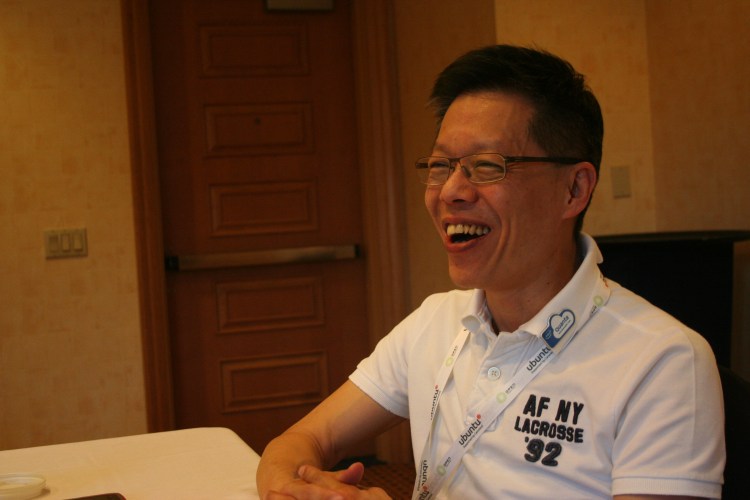SAN JOSE, Calif. — Facebook saves millions by running stripped-down, highly efficient hardware in its data centers. Now, other companies are interested in getting their own Facebook-style gear.
Three years after Facebook established the Open Compute Project (OCP) to work with the rest of the world on optimizing data center infrastructure, many vendors have jumped in to build gear in accordance with OCP standards, and some of those vendors are seeing real demand for their products.
That’s certainly the case with Quanta QCT, the cloud-computing business unit of Taiwanese IT giant Quanta Computer.
“People are just asking about OCP, OCP, OCP — when will that be ready, and what kind of spec [is that product]?,” Mike Yang, general manager of Quanta QCT, told VentureBeat in an interview. Since introducing OCP-inspired Rackgo X products that integrate servers, storage, and networking in October, “We can easily see that the leads [have increased] a lot in the past several months after we announced the OCP rack,” Yang said.
Quanta QCT is one beneficiary of the rise in public clouds and hybrid-cloud computing. Companies are relying more on Infrastructure-as-a-Service (IaaS) providers like Amazon Web Services and Google Compute Engine, and Quanta QCT is a sort of arms dealer for such operations. Going forward, it’s feasible that more of those IaaS providers will want to adopt the designs that have worked well for Facebook, which is not a cloud provider but operates huge numbers of servers to provide its social network to more than a billion people.
Quanta QCT should pull in 40 percent more revenue than last year, Yang said, although he declined to provide dollar figures. The company is adding customers quickly, just as revenue is increasing, he said. Existing customers include cloud provider Rackspace and Facebook itself.
Yang doesn’t aim to cut deals with every mom-and-pop business that keeps a server on hand. He’s focusing on “the top 50 customers in the cloud space,” he said. So each individual customer win could be a big deal.
This year Yang expects Quanta QCT to do even more of its sales deals directly with customers, as opposed to through big-name legacy server makers such as Dell or Hewlett-Packard. That means Quanta can keep a greater share of revenue and maintain a closer connection with buyers.
In 2011, 34 percent of all sales were direct, Yang said. In 2012 the figure was 64 percent, and last year it was 85 percent. “This year, I’m expecting 92 percent, so that number is growing very fast,” he said.
Quanta has come a long way, then. While it’s true that Quanta is a major international technology company — press materials put annual revenue for Quanta QCT’s parent company at $34 billion — in the United States it retains a low profile in comparison with legacy IT vendors. But that could change as Facebook and other big operators of infrastructure — think cloud providers — take steps toward getting custom-made gear directly from providers like Quanta.
And as such companies pick up more customers, some legacy server makers are seeing their business decline. In the third quarter of last year, Dell, IBM, and Oracle all brought in less server revenue than they did for the same period in 2012, IDC estimated. At the same time, companies like Quanta saw a 45.2 percent increase in revenue, according to IDC. And IBM just decided to sell off part of its server portfolio to Lenovo.
Business is shifting away from big-name vendors and toward the Quantas of the world partly because cloud providers like Amazon Web Services are seeing more demand for their services and can order increasingly large volumes of data center equipment.
Quanta chose to focus on that market, and that decision appears to be paying off. And Quanta seems positioned to capitalize as more people decide they want to buy the next-generation style of equipment coming out of the OCP. If all the interest Yang talks about translates into big revenue increases, the legacy vendors could be compelled to act. Maybe they’ll start selling OCP servers, for instance.


